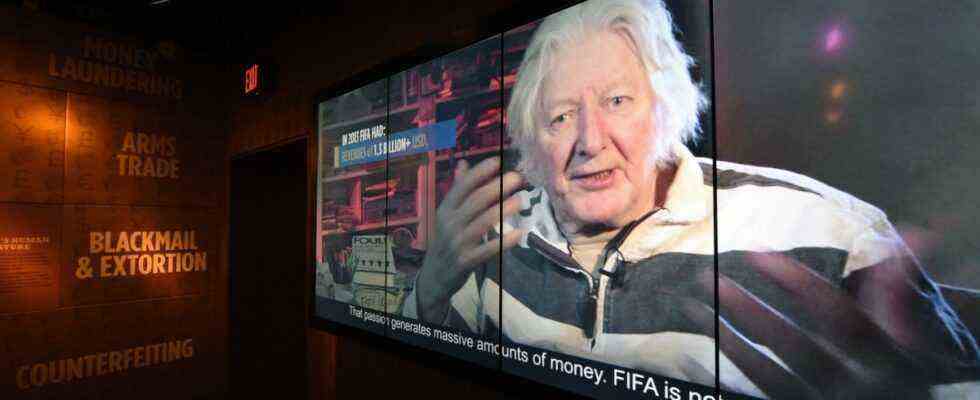He had a reputation as a tough researcher even before he turned to the sport. Andrew Jennings exposed corruption at Scotland Yard, he made TV documentaries for the BBC about the Mafia in Palermo and the civil war in Lebanon. Then came the sport.
Jennings – born in 1943 and raised in a London working-class neighborhood listening to the stories of veterans of the Spanish Civil War – now set his sights on the ruler of the Olympic world: Juan Antonio Samaranch. He was the governor of the dictator Francisco Franco in Catalonia, where the repression of the fascist regime was particularly brutal. The compatriots chased Samaranch away after Franco’s death, he moved as ambassador to the Soviet Union, where he was named boss of the International Olympic Committee (IOC) at the 1980 Moscow Games. He paved the way home by awarding the 1992 Summer Games to Barcelona. All of this already bore the corrupt patterns that were soon to set a precedent in the overhauled world sport.
Jennings’ book “The Lords of the Rings” (co-authored by Vyv Simson) revealed the dark business world behind the entertainment machine of sports in 1992. And it set a new tone in a journalistic field where reporters often saw themselves as postillions of those whom they should keep an eye on, and where they also liked to cultivate private ties.
So the lateral entrant always remained an outsider, the industry accepted that the IOC and the World Football Association (Fifa) banned him from the press for years. Jennings enjoyed the role, she couldn’t help but keep sports and the media on their toes with ever new revelations. The affairs could no longer simply be kept silent.
The milieu of the isolated world associations has not changed. But the way we look at them has changed
Shrewd and educated, sociable and aggressive, fearless and helpful: Jennings has been building an international network in a targeted manner since the nineties. In sports journalism, as is often the case in other fields of political and economic crime, the scoops were not well prepared in investigation or indictment papers, so that they could be picked up thanks to discrete wires to offices and law firms. Because sport has autonomy, so it keeps state power at a distance. That something changed at all, from the IOC bribery scandal in 1999 to Fifa Gate in 2015 when the FBI struck in Switzerland: Jennings’ books and networks also contributed to this.
As soon as he entered the sports entertainment industry, the Mafia reporter noticed that the omerta, the silence and the iron cohesion in the network of people in sport went beyond everything he knew from the world of crime. A finding that investigators still share today.
While researching a TV documentary about Fifa Gate 2015 in the USA, Andrew Jennings suffered a stroke. That forced him to retreat. But his work had already set standards, it lifts sports journalism far beyond the edge of the stadium. It is true that the milieu in the isolated world associations has changed little. But the way we look at it has changed, the way the western world looks at sport and its officials. Andrew Jennings, the figurehead of critical sports journalism, died on January 8th.

